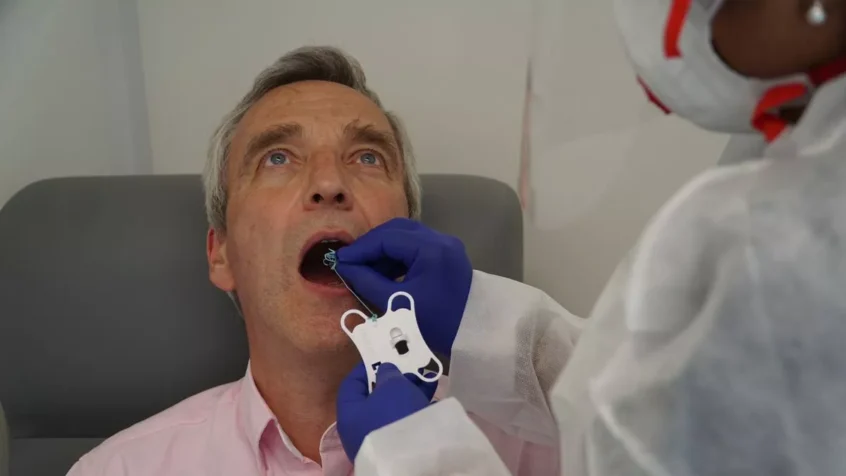In answer to a reader’s letter about acid regurgitation, I mentioned a new test – the sponge-on-a-string test – and I thought you’d like to hear about the latest research.
It comes from Cambridge University and means patients will no longer need an invasive endoscopy to examine the oesophagus (food pipe), thanks to the capsule sponge test.
The NHS pilot on over 8,500 patients shows almost eight out of 10 who completed a test were discharged without the need for further testing. Patients swallow the small capsule which contains a tiny sponge that collects cell samples before being extracted via a string. It has been developed by Professor Rebecca Fitzgerald, Director of the Early Cancer Institute at Cambridge University.
“It is very exciting to see the positive results of the NHS England real-world pilot for our capsule sponge test,” she says. “This is a major step forward to making this simple test more routinely available outside of clinical trials. Timely diagnosis is vital for improving outcomes for patients.”
Barrett’s oesophagus – a condition affecting the food pipe which can go on to become oesophageal cancer – is usually diagnosed or ruled out via an endoscopy, which is a camera test of the food pipe.
The sponge test, however, can be done quickly in a short appointment, without the need for sedation. Amanda Pritchard, NHS chief executive, says: “Thousands of people have now benefited from this incredibly efficient test on the NHS. While the sponge on a string is small in size, it can make a big difference for patients. They can conveniently fit the test into their day and it can often replace the need for an endoscopy while also helping to reduce waiting lists by freeing up staff and resources.”
In a survey of more than 350 patients who had the test, many patients recommended the test to a friend or family member, and 94% of patients felt mild pain or none at all. There are around 9,300 new oesophageal cancer cases every year. The NHS pilot was launched at 30 hospital sites across 17 areas in England including Manchester, Plymouth, London, Kent and Cumbria.
East and North Hertfordshire NHS Trust has now performed around 1,400 sponge tests, where Dr Danielle Morris, consultant gastroenterologist, reports almost nine in 10 patients prefer it to a gastroscopy. As of January, 368 patients have had a positive test result of whom about half have confirmed Barrett’s oesophagus while 72% of reflux patients were discharged back to their GP without the need for an endoscopy.

